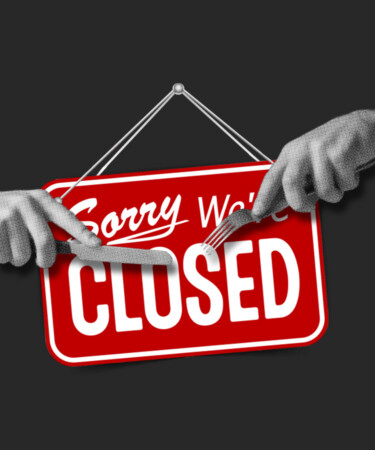A friend reached out to me recently about his sister’s disappointing experience with a three-Michelin-star restaurant in New York. It was her 15th wedding anniversary with her partner and they planned to visit the restaurant, which has always been on their bucket list, one year in advance to celebrate; they live a four-hour flight away.
In the time between the couple making the reservation and flying into New York, the restaurant experienced something in their kitchen that forced them to close unexpectedly and indefinitely.
Before I continue, I should say that this situation sucks and I fully empathize with this operator. The pandemic taught us a lot of things, but one thing it made very apparent is the fragility of the hospitality industry, and how just a few weeks of forced closure can cripple and even put a restaurant out of business.
With that said, my friend’s sister only learned about the restaurant’s closure six days before their reservation from an article on a popular local food and dining website. She reached out to the restaurant numerous times over the weekend, emailing and calling, but to no avail. Two days before the reservation, someone finally responded assuring her the restaurant would be open in time. But at 9:30 p.m. the evening before, she received an email saying “we look forward to welcoming you back soon“ — the restaurant was not indeed open again.
So what is a guest to do? Sure, they can find a reservation elsewhere and try to salvage the evening, but at the 11th hour in a city like New York, that’s hard to do — especially at a special-occasion restaurant.
The problem here is not that the restaurant had to cancel the reservation — shit happens, things break, and city regulations can be challenging. The problem is the restaurant’s response. Even from a non-Michelin-starred establishment, a call would be requisite. But from one of the top restaurants in the world, the guest deserves better.
While this particular situation might be something of a “1 percent problem,” there are lessons to learn at all levels of hospitality, especially regarding guest relations and especially during times of crisis.
There are several ways this could have played out that would have been more appropriate. First, even if there was an inkling that they would still be closed, the establishment should have made guests aware of the issue. Even if they knew for a fact they were going to open on time, there should have been an email and possibly a call clearing up any confusion and confirming reservations. The moment they knew they were not going to be open, it should have been all hands on deck calling every reservation on the books letting them know they had to cancel.
Now, for a three-Michelin-star restaurant, the supposed epitome of fine dining and hospitality, would it have been appropriate to also call other local two- and three-Michelin-star restaurants to try to cover their reservations? Yes. Is that time consuming? Yes. But would it show that guest, who planned a full trip around this dinner, that you actually cared about them? One hundred percent.
People understand when unforeseen situations come up, they’re not monsters (most of them). But empathy is the key, especially in the case of places that take reservations. (Especially especially in the case of world-renowned Michelin-starred restaurants.) To be an operator that prioritizes guest experience and cares about guest recovery, consider the following when dealing with an unexpected closure.
- Notify guests. Call or email every single reservation. “My sincerest apologies, something out of our control has occurred” etc. etc. This is the very least you can do for your guests.
- Make another reservation. If you have a sister establishment, offer to make a reservation there, and if you have other restaurateur friends, call them and ask for help. Also offer to make another reservation at your restaurant at a later date. Most guests will pass, but that’s OK because the effort you put in will show you care.
- Make a note for next time. Mark every one of those guests in your reservation system as special. That way, the next time they come in you know who they are, you can apologize again for canceling their reservation, and you can send out a drink or a dessert on the house. Even if they don’t come back for a year, if you do this, they will be blown away that you remembered the situation.
- Make it public. If possible, update your website temporarily with the closure information. Make sure that information is clear and available across your social media channels, and post a note on the door of the restaurant! (This one seems like a no-brainer, but I have gone to places on more than one occasion where they unexpectedly had to close but I arrived at a locked door.)
This story is a part of VP Pro, our free platform and newsletter for drinks industry professionals, covering wine, beer, liquor, and beyond. Sign up for VP Pro now!
